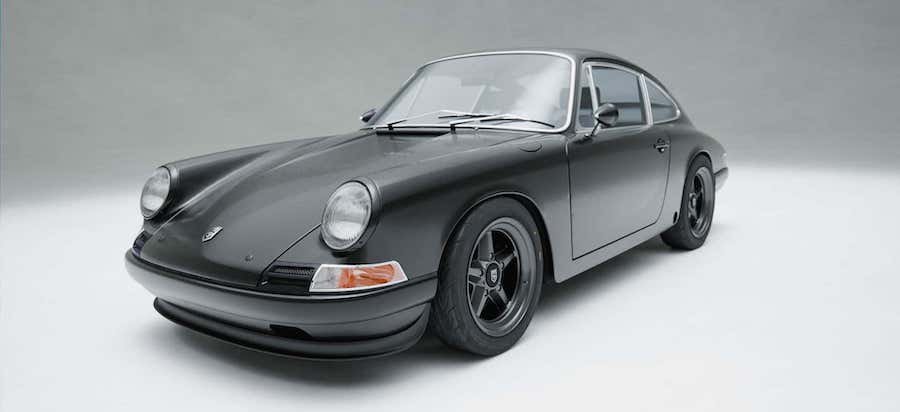This Carbon-Clad Porsche 912 Restomod Is Lighter Than Modern Formula 1 Cars

Offered with 1.6- and 2.0-liter boxers, the 912 would be discontinued in 1969. During this period, just around 30,000 coupes and 2,500 targas were produced. The lightest specification tips the scales at 965 kilograms (make that 2,127 pounds). The restomodded 912 in the photo gallery, on the other hand, weighs merely 699 kilos (1,541 pounds).
Revealed in September 2022, the KAMM 912c is an ultra-light restomod from Hungarian company KAMManufaktur. Their original specification weighs 750 kilograms (1,653 pounds) due to a semi-carbon makeover. Fast forward to December 2023, and the Budapest-based company is much obliged to confirm a more expensive full-carbon option for 2024.
Those interested in purchasing a 912c need to shell out at least 320,000 euros for the semi-carbon specification when a donor 912 is supplied. The turn-key car is 360,000 euros, whereas the full-carbon specification ranges between 360,000 and 400,000 euros. At current exchange rates, that would be a staggering 393,310 to 437,015 freedom eagles.
Why so expensive, though, especially for a four-cylinder sports car with a lesser following than the 911? Part of the reason is the sheer rarity of the 912. Then there's the high-quality carbon fiber and the handful of vehicles that KAMManufaktur can restore and enhance on a yearly basis. At the end of the day, there simply isn't a better 912 restomod out there.
According to founder Miklós Kázmér, prospective customers should also be aware that no 912c vehicles will ever be the same. Every customer benefits from a virtually unlimited range of paint colors, wheels, interior trim, KAMM-designed seats, and so forth. The 912c further sweetens the deal with modern air conditioning, infotainment with Bluetooth connectivity for your smartphone, improved aerodynamics, and better roadholding at speed.
Available in a variety of carbon-fiber finishes, including a fully-exposed weave to bring the point home, the full-carbon 912c further benefits from carbon-fiber wheels and a more powerful engine than the original's top engine choice. The powerplant in question is a 2,054-cc mill from JPS Aircooled. It belts out 190 metric horsepower in the semi-carbon 912c, which may not seem like much. On the other hand, bear in mind the full-carbon 912c is almost 100 kilograms lighter than modern Formula 1 cars.
Without fuel, the mass of a 2023 Formula 1 car must not be less than 798 kilograms (1,759 pounds). Formula 1's 2026 rules target a 50-kg weight reduction, which means that Formula 1 cars of the near future weigh more than the full-carbon 912c.
Oh, and by the way, the full-carbon 912c can be ordered with an even punchier engine than that of the semi-carbon spec mentioned earlier. In this application, 200 metric ponies should do the trick, but we won't be upset if JPS Aircooled squeezes out even more from four cylinders and a displacement of 2.0 liters. If you're planning to place a deposit on a 912c, make haste because KAMManufaktur is taking orders for the last remaining 2024 build slots.




Related News
